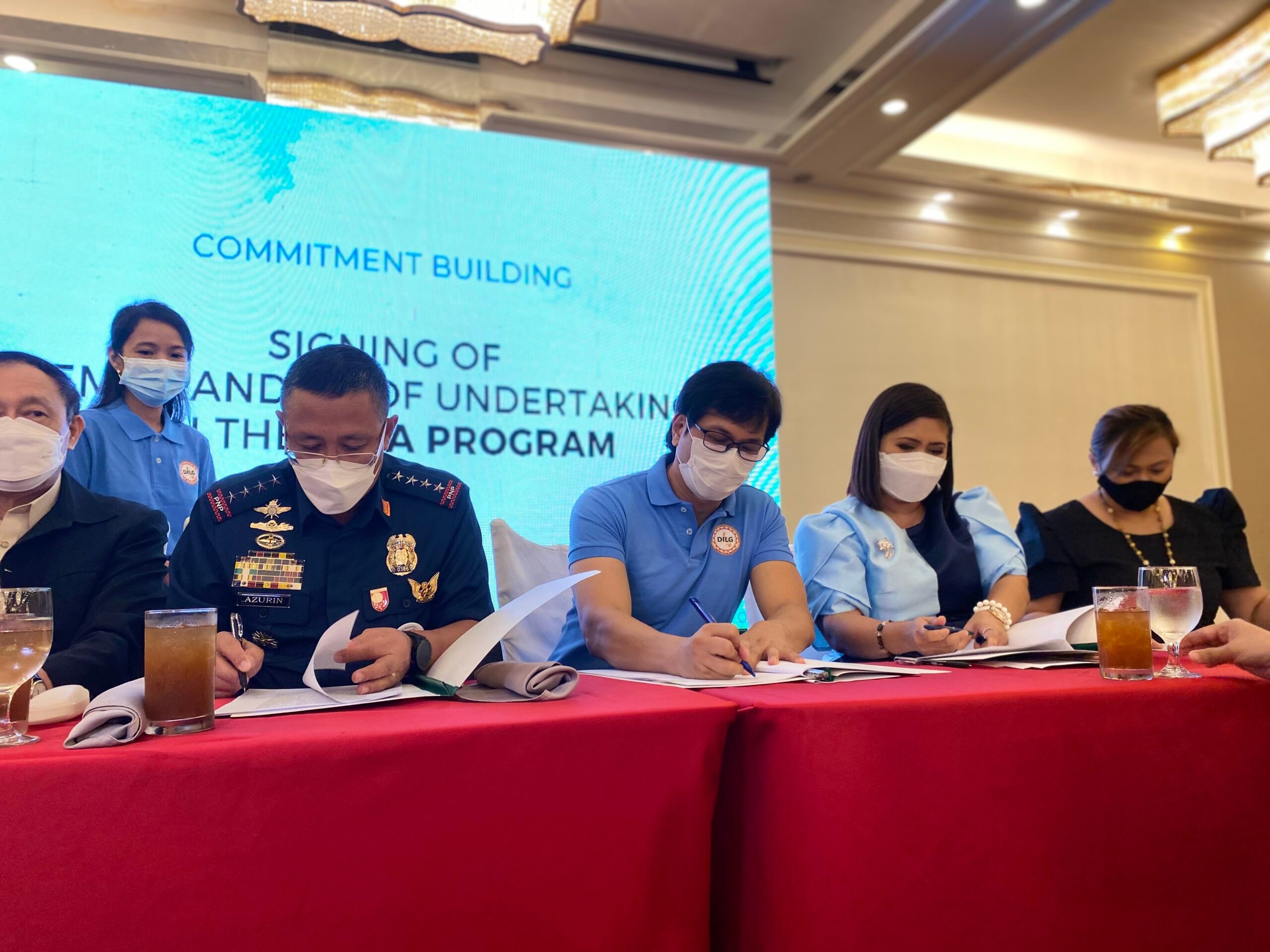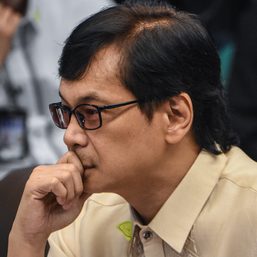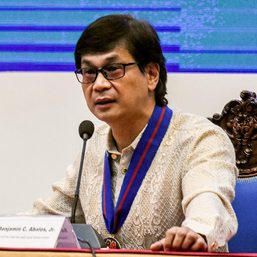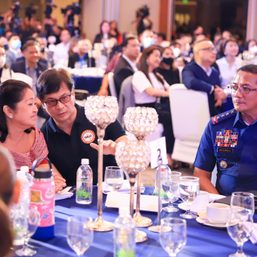SUMMARY
This is AI generated summarization, which may have errors. For context, always refer to the full article.

MANILA, Philippines – The Department of the Interior and Local Government (DILG) on Friday, October 7, launched its anti-drug program aimed at addressing the root causes of illegal drug use in the Philippines through demand reduction and rehabilitation.
The DILG soft-launched the “Buhay Ingatan, Droga’y Ayawan (Take Care of Life, Don’t Want Drugs) or BIDA” campaign in line with the Marcos administration’s commitment to continue the country’s war on illegal drugs but “within the framework of the law and with respect for human rights and with the focus on rehabilitation and socio-economic development.”
“The war on drugs is like a tree. Kailangan tanggalin natin ang ugat ng puno: unemployment, lack of education, the family…lahat ito para mapababa natin ang demand (We need to remove the roots of the tree: unemployment, lack of education, the family…all of these, so we can lower the demand),” said Interior Secretary Benhur Abalos.
Abalos and DILG Undersecretary Margarita Gutierrez both acknowledged that illegal drug use had “lessened” during the term of former president Rodrigo Duterte, but that focusing only on law enforcement was “not enough.”
According to Gutierrez, illegal drug users dropped by more than half since 2016. The Dangerous Drugs Board released similar figures in the 2019 Drug Survey, which reported 1.67 million Filipinos aged 10 to 69 who were drug users, compared to some 4 million in 2016.
“Indeed, the previous administration successfully enforced an all out war against drugs with a laser focus on law enforcement. President Ferdinand Marcos Jr. has stated that he will not let this fire die out, and that our war on illegal drugs will press on stronger than ever before,” said Gutierrez.
“However, in order to truly triumph over the drug menace, we must face the truth: our current approach is not enough. Law enforcement is merely one part of the equation, and the current President himself has reiterated many times the need to refocus our efforts to better serve the people,” she added.
DILG’s BIDA matched what Marcos said on September 23 – that the drug war would continue, but the focus would be more on prevention and rehabilitation rather than law enforcement.
However, while “human rights” was highlighted in BIDA’s priorities, at no point in the Rizal Park Hotel event did any official mention the thousands of killings that Duterte encouraged in his war on drugs.
Duterte’s deadly war on drugs remains under the scrutiny of the International Criminal Court. ICC prosecutor Karim Khan on September 22 insisted that the probe into alleged killings under Duterte’s leadership should continue.
Justice Secretary Jesus Crispin “Boying” Remulla said that Khan was doing the court a “disservice” for challenging the Philippine system.
‘It will all be legal’
Abalos said in a chance interview with Rappler that the DILG’s fresh approach in fighting drugs would be “pro-life.”
“I will say that it’s pro-life. It is looking through the eyes of what it should really be, and not in the negative side of dark days of drugs. It should be like that,” he said.
Does that mean there will be no more killings?
Abalos answered: “Basta definitely it will be based on our oath in accordance with the Constitution. It will all be legal.”
The interior secretary highlighted the need to engage all sectors in the fight against illegal drugs, including the communities, the church, schools, and down to the families.
In the DILG’s approach to the war on drugs, national agencies would also provide support in their own ways. The interior secretary imagined that education about the damaging effects of drugs would come from the education department, rehabilitation efforts would come from the social welfare department, and psychosocial intervention would come from the health department.
“What is important is get the children involved in activities…. As long as they take care of themselves, through running, through different kinds of sports. Even through different cultural things like singing, painting, writing. Get them involved in activities, environment, to show them that there is more to things than drugs,” said Abalos.
Abalos added that the role of the Sangguniang Kabataan was important in making the campaign against drugs more relatable and convincing if it came from fellow young people.
A September 13 report by the United Nations Office of the High Commissioner for Human Rights said he Philippine government must do more in its investigations into incidents of abuses. These include the widespread killings that happened under former president Duterte’s war on drugs – about 6,000 were killed in police operations, according to government data, but human rights groups pegged the number at 30,000 to include those killed by vigilantes.
The report found that drug war victims had “limited access” to justice. – Rappler.com
Add a comment
How does this make you feel?













There are no comments yet. Add your comment to start the conversation.